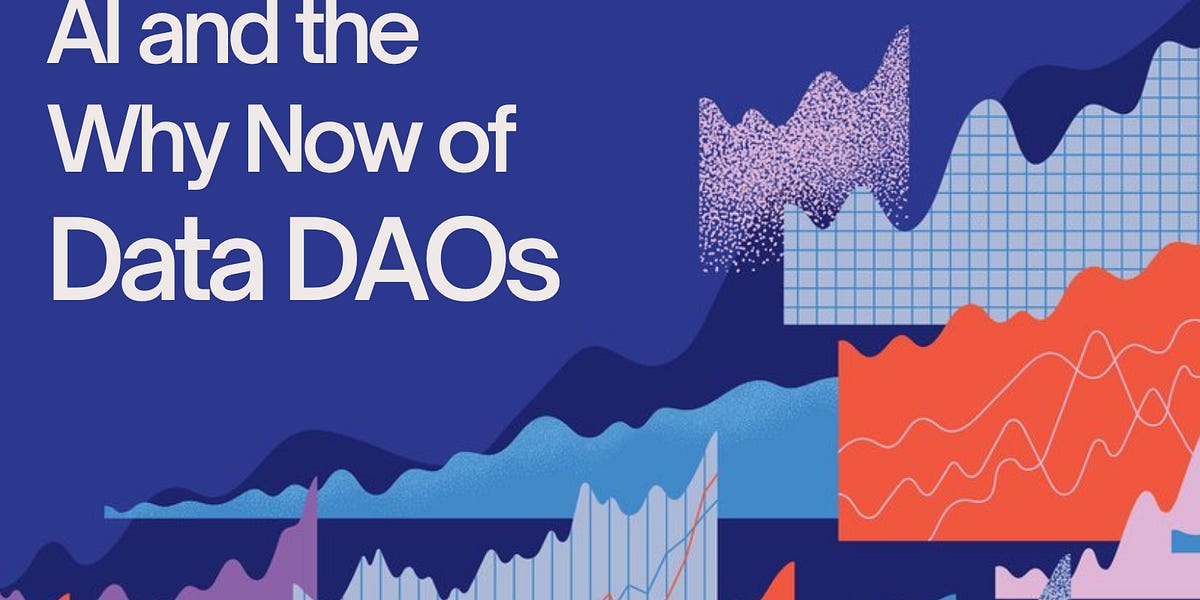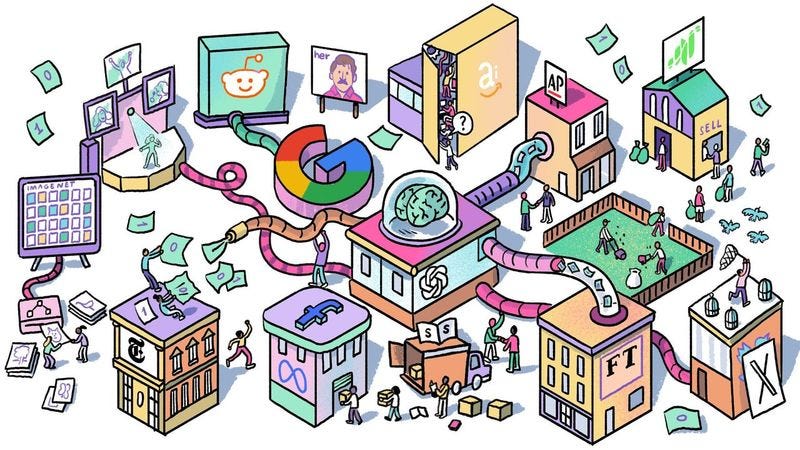027 - On data, governance and living
Yes, I'm late with this. But, my dear reader, while I feel a bit guilty for not planning properly, I let it not come to my head. I should have scheduled the writing, but, hey, didn't. And you know what, the world is still turning and I'm not gonna beat myself up for missing my own deadlines. And that's because this blog should be fun. Once it doesn't feel like fun anymore, I throw in the towel.
I had two crazy, physically challenging, mentally rewarding, family filed weekends. Amongst all of that I've also thought about this weekly issue of curating my readings and bookmarks. Throwing everything together isn't the best experience. It makes it easy for me, and hard for you. That's not the way to entertain a reader. Mystery is welcome in fiction, but for curation connecting the dots is better.
Let's raise the curtain for kbc's curation v2.
Wait! Before I forget! TogetherCrew and other awesome projects are part of Octant's epoch 4 public goods funding round. Have a look at the projects, cast your vote, or recast the cast.
On data
In AI and the Why now of Data DAOs, Li Jin explains why the time is ripe for data DAOs. Not a new concept by the way. It's a shorter piece compared to The Data Must Flow by Joel. This one is an excellent explanation of how LLMs are trained and where do we need what data, and why abusing the same data set when training your LLM is not a good idea. It also touches on some interesting protocols building in this area.
On better governance
In How much does a crypto vote cost Joel Monegro makes the point that you can buy influence. Every time a token has governance utility, you can - with sufficient funds - buy or borrow a token just to make sure that the outcome of a vote is aligned with your interests. To make it harder for people to sway an outcome in a direction or another protocols need to make it more expensive to borrow a token. If you need to hold it for weeks or months for your vote to be eligible, interest payments increase. Hence the costs of voting shoots up.
Another way to make it harder for people to influence the outcome of voting is to use Shielded Voting by Shutter Network. First designed to protect users against MEV, it encrypts the action of a user, in the case of Snapshot a user's vote, until the voting period ends. Only then are the votes automatically revealed.
The underlying touch points in Joel's and Shutter's post is crypto's love-hate affair with governance. Everyone finds this open transparent way of managing great, giving the middle finger to traditional centralized governance. But getting your butt off and casting your vote remains, well, not a priority across the industry.
When looking for solutions to problems, we humans tend to either create a stick (punishment) or carrot (reward). To deal with the voter apathy Snapshot, the voting platform, created a carrot called Boost (not to be confused with Rabbit's protocol with the same name). The aim of Boost is to increase voter participation by dishing out rewards for those who take the effort to do a couple of clicks.
https://www.placeholder.vc/blog/2020/1/7/how-much-does-a-crypto-vote-cost
On Living
The Art of Populism by Boris Groys ended up on my reading list because culture had no place in my youth. What mattered were grades, and art - in any form - wasn't encouraged. Neither was it openly discouraged. But kids are smart and can read between the lines. This is a space I constantly feel inadequate to participate in leading to a drive to "educate" myself - the academic path towards enlightenment that was drilled down so many years ago.
Boris Groys describes the divide between art that is entertaining, appealing to the masses, and art that is serious, appealing to the few and relevant to history of art. Artists have to pick one side, as a creation can not appeal simultaneously to two orthogonally opposing sides. However, nowadays, people are sick of constantly switching identities and fighting with each other. We gloss over differences in the name of Unity. We stick to our masks because exploring another one is cumbersome. The play stops and we're all exhibits in the museum of life, with god being the only observer. And, according to Boris, god doesn't value beauty, "only the seriousness of ethical and political commitment" (btw, I disagree with that statement, because nature is too dam beautiful). The end result is art for the masses that is serious and not necessary aesthetically pleasing, because artists create for the only spectator that exists: god
This last article is of a completely different nature. It reviews the book Four Thousands weeks. Time management for Mortals. The tldr is that life is about making choices. You need to develop coping mechanism, and feeling FOMO isn't one. Chasing efficiency seems to be a vain and useless pursuit. As is pushing out death. Now, that doesn't mean to get drunk and high every night, but to be comfortable with the fact that you will die once. And that's human. This reading is in line with other's I have shared about taking it slow. If this resonates with you, check out slowcore-hq on Farcaster.
In other news
TogetherCrew and other awesome projects are part of Octant's epoch 4 public goods funding round. Have a look at the projects, cast your vote, or recast the cast
I'm still experimenting with my alfafrens channel. It does feel like I'm in a stage of putting a blanket over my head, trying hard to shout out everything that is happening. Thinking about Onchain summer is exciting but also tiring.
I'll be at ethcc. DM me if you are there. Would love to meet up.
Muted Words chapter 5 will be released next week.








